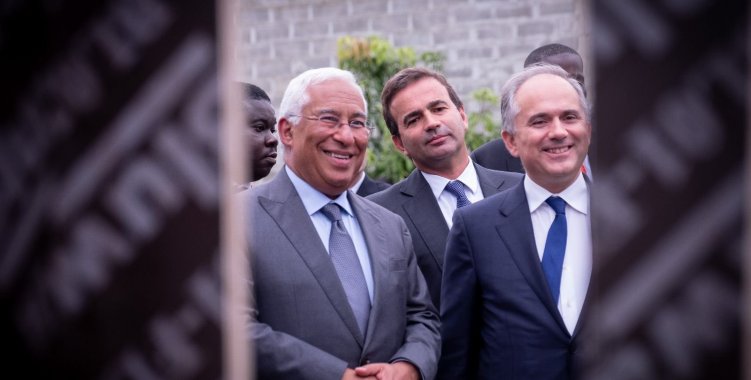This position on History was defended by António Costa in the speech he gave at the beginning of his visit to the works for the Fortress of São Francisco do Penedo in Luanda - a 17th-century monument, converted by the Estado Novo into a military prison house and which will be the future Liberation Struggle Museum.
Mota-Engil is responsible for the rehabilitation work on the fortress and, as the Minister of Culture of Angola, Filipe Zau, pointed out, this is one of the projects that has the support of Portuguese cooperation.
According to António Costa, Portugal and Angola have had a "twin liberation process" for 49 years.
"Colonialism lasted several centuries and in its last 48 years [it prevailed] through a fascist dictatorship that oppressed the Portuguese people and continued to oppress all colonized peoples. The struggle for the national liberation of colonized peoples was a decisive contribution to the liberation of all of us with the 25th of April 1974. And the 25th of April clearly accelerated the success of the struggles for liberation, leading a year later to the independence of the former colonies", maintained the leader of the Portuguese executive, in a speech that was much applauded.
For the prime minister, the struggles of those resisting the Estado Novo in Portugal and for independence in the former colonies "were twins", noting then that several of the founders of the liberation movements passed through the House of Students of the Empire. And some of them came into contact with fellow students in Lisbon who developed their political awareness.
Next, António Costa defended the thesis that History "is not chosen, it is assumed and respected, explained and studied".
The Fortress of São Francisco do Penedo, according to the leader of the Portuguese executive, partly represents the evolution of the History of Portugal from the last quarter of the 17th century to the present day.
"It started as a fortress against invasion attempts by other colonial powers, then it was a military installation, a slave depot, a military prison and, finally, a prison for anti-colonialist and anti-fascist political prisoners, Angolan and Portuguese. One of the prisoners who was here about 60 years ago was Manuel Alegre, today a State Councilor in Portugal and father of the ambassador [Francisco Alegre] who represents Portugal in the sovereign and independent state that is Angola", he added.
Therefore, António Costa concluded that Portugal and Angola have a common history, "sometimes painful, but in which they were on the same side at various times in a common struggle".
"Today, there is a debate about how we should take on the History of the past and I think that we should take on History in all its dimensions, in what was tragic and what was extraordinary. The Discoveries and navigation are in no way diminished by the horror that was slavery. But the brilliance of scientific knowledge that allowed the Discovery cannot make us forget the tragic dimension that was slavery", he stressed.
António Costa went even further in defense of this historical epistemology, stressing that "those who fought against the Portuguese colonial army were patriots, as were the Portuguese soldiers who fought in the service of the Portuguese State in Guinea, Mozambique and Angola, according to the mandate they had to defend the colonies. And once in peace, all patriots can be brothers".
"Now that we are about to mark 50 years of freedom and democracy, 50 years of peace and, the following year, 50 years of independence, what we can say is that we honor all the History that we have inherited, we understand that History well and we know that The greatest duty we have before this history is to heal the wounds and build on it the friendship that will assure us many good years of fraternity between our peoples, with a common language, a common knowledge and a common memory", he added.







